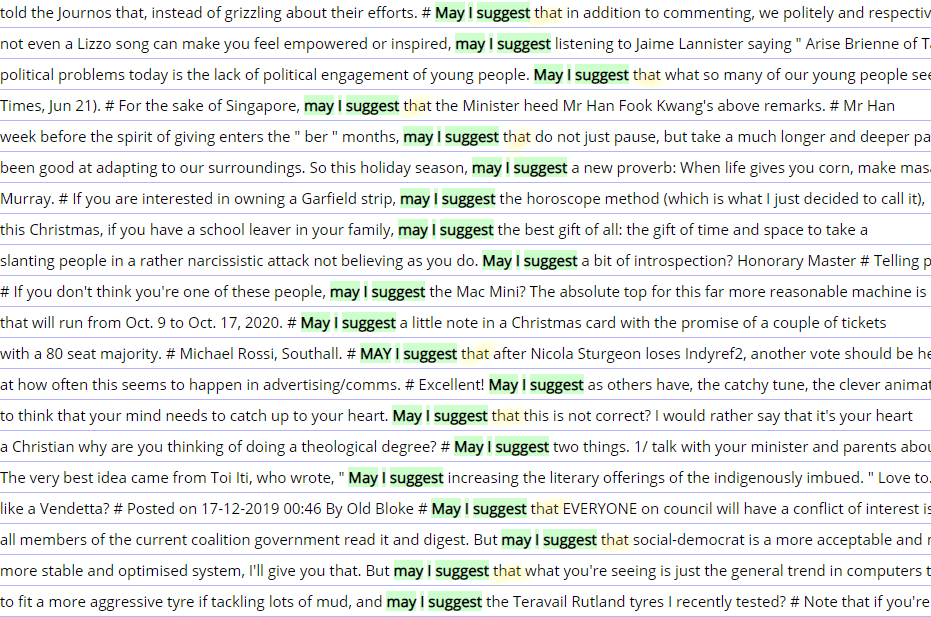There are four entries in the English Grammar Profile that capture “May I…?” Point 97 are polite questions. They probably are not really asking for permission. 119 is literally asking for permission. Yet, for the purposes of designating a complexity level, this matters little. The interpretation of this structure becomes more difficult once we jump to B2. Now pragmatically the function has moved beyond asking for permission. At 127 it is a polite request, clearly more of a command and now the context is stipulated as being formal. However, what becomes hard to understand is the final B2 entry: Point 133. How is point 133 different to point 119?
What is the difference between:
“May I borrow your bike?” and “May I come in?” Why is the first example B1 and the second B2? There seems no real tangible difference between the pragmatics here. I could compare more of the points, but it seems at times there are concrete differences and at others no real difference between the concepts at the points and levels. I will leave you one last comparison to ponder on what seems the same topic or possible test question:
B1: May I ask you if our company will receive the usual 10% discount?
B2: May I ask you if your special offer will be still available in September?
MODALITY B1:
Point 97, question form with ‘I’.
May I give you a short presentation on 17th December?
May I ask you about my accommodation?
May I ask you if our company will receive the usual 10% discount?Point 119, ‘may I’ to ask for permission.
May I be your guide while you stay here?
May I borrow your bike?MODALITY B2:
Point 127, ‘may I’ to make a polite request, command or suggestion in formal contexts.
May I have your attention please?
May I ask you to use e-mail or postal services whenever possible?
In terms of how we are going to travel around while we are there, may I suggest that we use the two bicycles that are at the house?Point 133, ‘may I’ to make a polite request for permission.
Sir, may I come in?
May I ask you if your special offer will be still available in September?
May I speak to Miss Wright, please?
“May I” is most often found in fiction and to a lesser extent, it is spoken. We can gather this from the COCA:
SPOKen 1368, FICtion 2004, MAGazines 180, NEWS 154, ACADemic 67.
A look at 5 spaces left and right of “may I” in NOW corpus quite simply gives us a clear idea of the context of this structure. Most of the infinitives (VVI) are “functions of language”: suggest, ask, say, remind, add etc.
1 SUGGEST (VVI ) 1356

2 ASK (VVI ) 942
 Daily Joke: A little boy was afraid of going outside in the dark
Daily Joke: A little boy was afraid of going outside in the dark
Starts at 60–17 Feb 2020
3 SAY (VVI ) 769
15 Reasons We Need Sophia Lillis to Be in Every Movie and …
POPSUGAR Australia–18 Feb 2020
4 REMIND (VVI ) 517
Letter: No, Germany should not invest in military tech
Financial Times–19 Feb 2020
5 ADD (VVI ) 486
The Please Touch Museum—A Special Treat for Little Ones
The Zebra–18 Feb 2020
6 PLEASE (RR ) 370
7 OPPORTUNITY (NN1 ) 302
8 REQUEST (VVI ) 200
9 OFFER (VVI ) 152
10 SIR (NN1 ) 143
11 RECOMMEND (VVI ) 140
12 WISH (VVI ) 131
13 THEREFORE (RR ) 129
14 APPEAL (VVI ) 118
15 HUMBLY (RR ) 105


